Minky Lowlife (![[personal profile]](https://www.dreamwidth.org/img/silk/identity/user.png) minkylowlife) wrote2018-12-02 10:07 pm
minkylowlife) wrote2018-12-02 10:07 pm
Entry tags:
Best Albums of 2018
Not as strong as 2017, but still pretty great! Here's 2018.

40. HATCHIE - Sugar & Spice
Nostalgia is a tricky thing in music; its familiarity can be the hook that draws a listener in, the shorthand to a range of emotions that the artist can develop further. It can also be a risk, sanding the edges off of a song where innovation would work better. In the case of HATCHIE, the sparkle and smoothness of her songs, recalling Sixpence None the Richer and Tal Bachman, serves to create a time and place that Harriett Pilbeam is at home in. Riding the sun-kissed optimism-pop of our generation’s teen years, she taps into a youthful rush, flexing her considerable hooks over the memories of shopping mall sodas and Keds. It’s a delightful, joyous EP that demonstrates that pastiche needn’t be unoriginal or boring.
Download: “Sure”, “Sugar & Spice”

39. Aisha Burns - Argonauta
Argonauta is probably the loveliest-sounding album of the year. As a trained violinist, Burns has a strong sense of how to arrange strings to add depth and complexity to her simple arrangements, and as a gifted vocalist she manages to tease out emotions from even the most opaque phrases. Burns’ voice flutters between chest and head voice, giving the sense of a wounded crack but with effortless control. It’s the centerpiece of the record, which gracefully and hauntingly navigates through loss and new love, uncertainty and the finality of death. Tracks like standout “Must Be a Way” simultaneously are heavy with sorry and levitate in their own beauty, as if suspending the track in amniotic fluid. The instruments cradle Burns, wrapped around her mourning and her hope with warmth and gentleness.
Download: “Must Be a Way”, “We Were Worn”, “I Thought I Knew You Well”

38. Lindi Ortega - Liberty
Lindi Ortega’s storytelling album is half spaghetti western, half bordertown Cormac McCarthy-esque solo journey. Ortega puts together a tale of betrayals, resurrections, revenges, epic romances and cruel twists of fate, spanning a variety of tones. “In the Clear” is a soothing, beautiful, nearly hymnal patch of serenity, while “The Comeback Kid” and “You Ain’t Fooling Me” are energetic, rolling rock songs; all are knit together by Ortega’s ghostly vocals, her indebtedness to Ennio Morricone and her flair of Spanish guitar. Liberty is an excellent Western Gothic yarn and an energizing addition to this year’s buffet of country music delights.
Download: “The Comeback Kid”, “In the Clear”, “Forever Blue”
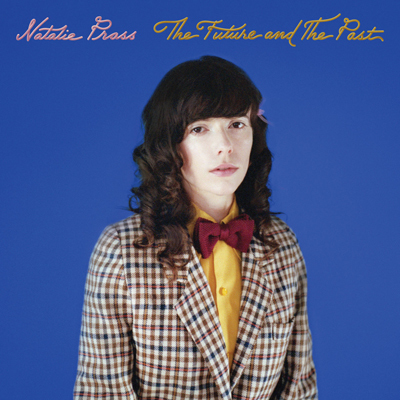
37. Natalie Prass - The Future and the Past
What if indie pop were a meld of Erykah Badu and Burt Bacharach? Natalie Prass attempts to answer that on her sophomore album, a slick, charming collection of fine-tuned tracks. Prass’ high, clear voice and sharp enunciation makes everything sound prim and composed; her songwriting, flush with sparkling keyboards, chatty basslines and quick drums, has a signature coolness to it. Prass brings the warmth, the arrangements bring the cool. Some of the songs outright take flight, like the huge swoon of “Lost”, the crafty shuffle of “Sisters”, or the tragic twist on the Carpenters with “Far from You”; the record as a whole is a smart, polished and entirely unique take on orchestral pop that pays debts to influences both obvious and obscure.
Download: “The Fire”, “Lost”, “Short Court Style”

36. Dessa - Chime
Whether Dessa’s more a singer than a rapper is a matter of debate; whether she’s more a spoken word artist than a rapper is up to as much questions. For a decade, Dessa has been prettifying her niche in Minnesota rap with her beat poet sensibilities, bringing the type of tight twists on common phrases that enthrall a coffeeshop into grander, fiercer hip hop and smoother, hookier indie pop. Chime finds her developing all of these domains, producing some of the most cutting rap songs of her career (the low-key horrific depiction of grief in “I Hope I’m Wrong”, for example) as well as the most developed straight-up pop tracks she’s ever committed to (“Half of You”, “Boy Crazy”, all of which could be hits for mainstream pop stars). Dessa shows that she has utmost confidence and chops in all these arenas, producing memorable track after memorable track, finally delivering an album that capitalizes on the promises she made in 2007.

35. Devon Welsh - Dream Songs
I’ve never heard an album that feels so much as laying in green grass and staring at the sky as Dream Songs does. True to its name, Welsh’s solo debut is languid and impressionistic, easing the listener in rather than confronting them. There are deep truths (“you need love in your life” feels like a benediction, coming from Welsh’s flat, deep, detached voice) but mostly it’s a mood, an airy floating sensation, as if there’s no connective tissue between body and thought. Welsh captures that with an artful looseness, using much the same technique he did back with Majical Cloudz to evoke a sense of loss and rejuvenation in peace. Dream Songs is a worthy solo endeavor, and one that promises that Welch will go on to continue making great music even on his own.
Download: “Summers End”, “Vampires”, “Dreams Have Pushed You Around”
Download: “I Hope I’m Wrong”, “Boy Crazy”, “Good Grief”

34. Charlie Puth - Voicenotes
There’s a vein of pop music that’s anonymous. It’s perhaps the purest example of the voice as an instrument; music where the vocalist is plugged in like any other part, a conveyance of melody and complement to the rhythm rather than an expressive actor. It’s art for consumption and pleasure, rather than art as a vehicle for deep truths.
Sometimes it’s delightful.
Charlie Puth is not a strong presence in his own songs, but he’s a perfect vehicle for pleasing, uncombative hooks. He’s dexterous and smooth, able to slickly color in the spaces in the melody. The melodies themselves are bountiful with ear wormy attraction; every song here could be a single. The pop music here is maximized for bopping, the kind of toe-tapper pop that doesn’t change lives but makes everything a little bit better. The production is polished, giving the instruments space to breathe, each element winding around the other.
For most of the year, this was the only pop album worth listening to. It’s not a pop album that will go down in history, but it’s a bulletproof collection of jams.
Download: “Empty Cups”, “Attention”, “How Long”

33. How to Dress Well - The Anteroom
Can you find love in something you’ve been told to hate? Tom Krell of How to Dress Well tries to see if tender-hearted intimacies can survive the world in this mash of experimental ambient music and earnest R&B. The Anteroom is named after a waiting room, the kind of purgatory where one has to sort themselves out before whatever it is they’re anticipating. Krell’s work on this record suggests that between our bodies and our lies, we have a lot of work to do.
The sound of the album is unlike anything else I heard this year; tracks are like songs vivisected and dismembered and then loosely stitched into strange chimeras. Sometimes a vocal riff that would be right at home on pop radio will glide in on top of pummeling drum machine missive or fidgety electronic programming and distortion. The result is a sense of disorientation that indicts our muddled confusion around our own bodies. Krell’s lyrics are about bodies, skulls and muscle and body fat; the music is about something wholly more artificial. The juxaposition encourages us to try and synthesize the two, a challenge Krell leaves hanging for us with an intentional lack of closure.
The experiments that work best are the ones that hew closest to traditional pop structure, where Krell’s knack for melody have the most room to flower. Krell’s voice carries an incredible amount of tenderness, capable of making a line like “there’s still so much pain and anger in your body fat” sound like the gentlest, kindest exculpation. Forgive our bodies, Krell encourages, or better, forgive ourselves for our struggles. The music doesn’t tell us how to do that, but it does plant the prompt in us.
Download: “Body Fat”, “A Memory, the Spinning of a Body | Nonkilling 2”, “Love Means Taking Action”

32. ROSALÍA - El Mal Querer
I won't pretend to understand half the references Rosalía incorporates into El Mal Querer - based on a medieval text about a woman locked up by her lover - but even as someone who speaks no Spanish, Rosalía's eclecticism and thoughtfulness comes through. Rosalía is a prism for human work, refracting disparate influences into a silky, elegant whole. She crystallizes a combination of flamenco, R&B, hip hop, hymn and non-traditional percussion into a new sound, one with endless capacity to evolve and absorb. Beyoncé and Justin Timberlake slip in next to Gregorian chants, tied together by Rosalía's fluid vocals and sense of texture. Even without knowing the words, it's impossible to miss the passion, the drama and the craft.
Download: "MALAMENTE (Cap.1: Augurio)", "BAGDAD (Cap.7: Liturgia)", "DI MI NOMBRE (Cap.8: Extasis)"

31. Beach House - 7
To enjoy Beach House is to be transported. The duo has managed to create their own sense of setting, a dreamy, hazy, melancholy place where you can go sit and think. This album, 7, may be the clearest they’ve ever manifested this vision; the sound on each track makes you feel as if you’re plucked out of time and space and placed in a different state of being. The sustained sounds feel like a fall that never completes, the vocals peacefully pull the listener along. Without sounding maudlin or boring, Beach House have created a place to fall into, and, impressively, it’s even better than their last records.
Download: “Lose Your Smile”, “Woo”, “Last Ride”

30. Robyn - Honey
Robyn’s long-awaited album Honey, her first since 2010, is the kind of record you can sink into; it’s warm water, familiar sounds reinvented into something new but not jarring. It’s definitely pop music, but it’s pop that exists more as a sound than as a genre. Like many pop artists in recent years, Robyn’s backed away from the grand, explosive choruses that made up some of her most famous work, and instead gone into moodier, more languid places. Off in the deep end, she’s free to explore with landscapes of synthesizers, her voice often more like a sample coming in than the guiding light of a topline. The world she creates is lush, calming, swirling and in constant motion; it’s one that makes a case for “chill” pop music being inventive and cutting-edge instead of just trendy.
Download: “Missing U”, “Honey”, “Because It’s in the Music”

29. Kathryn Joseph - From When I Wake the Want Is
“And It Will Lick You Clean” is one of the song titles on Kathryn Joseph’s sophomore album, and while the lyrics indicate the “it” in question may be a purifying flame, the image that comes to mind is one of some mammalian mother tending her brood. That’s the feeling this album creates; one of cloying, intimate, slick warmth, of a crowded den, of bodies touching each other. Perhaps it’s the way Joseph’s wispy croak always sounds like it’s a few inches from the listener; perhaps it’s the dark, fluid piano lines streaming throughout the songs. Joseph’s carved a space for herself in the current crop of singer songwriters, moodier than the others and more internal. It’s a gift that she lets us in.
Download: “Tell My Lover”, “Safe”, “Mountain”

28. Kali Uchis - Isolation
Isolation truly begins with a deep exhale, a plume of smoke, a hazy, luxurious release of tension in “Miami”. Kali Uchis purrs along, murmuring the word “Miami” like the world’s most persuasive tourism ad, while instruments twine around her like serpents. The production feels humid and relaxed, a feeling that persists through the record almost as much as the underlying sense of threat to each track. The music ripples with the sense that some kind of darkness is lurking, and occasionally Uchis pulls the curtain aside so that we can see peeks of it: financial anxiety, violence, degradation, misogyny, objectification, commodification, depression, betrayal.
Uchis, trailing a wake of different sounds with her, applies an almost twisted sense of contentment to these topics; “In My Dreams” is a whirring low-key bop that somehow makes wanting to shut down from an overwhelming world seem as fluffy as cotton candy. “Your Teeth in My Neck” seems upbeat and peppy until the title drops and the menace of capitalism suddenly reveals itself. The chorus of “Killer” is whimpered in such a sultry, pouty way that you might miss Uchis describing her future as “battered and bloody”. The result is glamorous but not glamorizing, not an endorsement but a depiction of the lies we have to tell ourselves to ignore the ugliness we all know is there.
Download: “Miami (feat. BIA)”, “Feel Like a Fool”, “In My Dreams”

27. Years & Years - Palo Santo
Pop music has generally lended itself to exploration of sexuality more than many other genres; for whatever reason, the desire for “authenticity” (an incoherent narrative which nearly always supposes whiteness and masculinity) never infected the genre, and while still informed by marginalizing influences, it allows for fluidity with sexuality and gender. It’s this history that allows artists like Olly Alexander to commit to an album that celebrates deviation from social expectations; the album as a whole encourages queer and repressed people to free themselves from the stories we’ve internalized about worthlessness and one-dimensionality.
This album celebrates transgression, but the music is straightforward pop - and excellent pop, at that. The pulsing heart of any good pop song is a chorus that moves someone and remains stuck in your head, and each song manages both. Songs like “Preacher”, “All for You” and “Hallelujah” have an airy, levitating quality to them, the kind of electropop that stands in stark contrast to the current top 40 narcotized haze, the kind of music that makes people stand higher on their feet and feel their heart pick up pace. Elsewhere, the taunts of “If You’re Over Me” and “Lucky Escape” recall the chipper indie-pop fare of the aughts, á la Imogen Heap and Marina & the Diamonds. The combination of sleek dancefloor tracks and the boundary-pushing subject matter makes for a collection of bangers that both soothes and challenges.
Download: “Hallelujah”, “Preacher”, “If You’re Over Me”

26. Santigold - I Don’t Want: The Gold Fire Sessions
Santigold’s discography is checkered by genre exploration; her debut album, for example, rollicked through prim indie shuffles, new wave jams and shouty, declaratory breakdowns of current rap music. On I Don’t Want, Santigold dips her toes into dancehall pop, inflecting her songwriting with Jamaican riddims and digitized samples. The tracks are lush and strong, woven together by fades, musical callbacks and outros mutating into intros, like a kaleidoscopic party that lasts half an hour. Santigold’s idiosyncratic voice anchors the record, pulling together dancefloor tracks for grinding with slower, lighter tracks that feel perfect for chatting on a balcony with a joint; she sounds more at home in this genre than she has in any other environment since her debut. As an experiment with new sounds, I Don’t Want is a success, emphasizing Santigold’s strengths as a creator of sonic environments, a keen ear for memorable melodic phrases, and a flexible, unique vocalist.
Download: “Wha’ You Feel Like”, “I Don’t Want”, “Don’t Blame Me (feat. Shenseea)”

25. Emma Ruth Rundle - On Dark Horses
Emma Ruth Rundle approaches her music as if she is drawing on elemental forces. Her music carries storms and tectonic shifts in it. The music is heavy but not punishing, the hallmarks of heavy metal music stretched out over the skeleton of indie rock music. Rundle, with a voice that finds the thin intersection between stately and decrepit, surrounds herself with slamming drums and reverb, pulling the listener into a maelstrom of sound and ache. The songs aren’t fast or complicated, but forceful. Every guitar chord feels as if the weight of the sky is being pushed across the strings. Only Rundle’s poise and commitment keep the songs elegant instead of lumbering, gothic instead of dour, like a hurricane instead of a swamp. On Dark Horses is a refinement of Rundle’s sound and a unique, excellent entry into the world of heavy, ambient indie music.
Download: “Darkhorse”, “Control”, “You Don’t Have to Cry”

24. Miya Folick - Premonitions
Anchored by Folick’s massive voice, Promotions is an ambitious and polished debut that accurately reflects both the political climate and the complex relational drama of being a twenty-something in 2018. Most of the album is jubilant or reflective, with songs of emancipation from social norms or assumption of responsibility finding freedom in knowing one’s self and committing to who you are. Folick provides her melodies a type of excitable heft, and the lush indie rock backing her makes her compositions sleek and strong. Her explosions into joy are undeniable.
And then “Deadbody” comes down like a guillotine. One of the best and ugliest songs of the year, “Deadbody” is a funeral march and a battlecry. In the era of #MeToo and Brett Kavanaugh, “Deadbody” is the flipside of the freedom to choose for one’s self, and is a gutting, powerful statement against sexual violence. It casts the rest of the album not into darkness, but into relief; joy is all the more powerful when it’s wrested from the hands of trauma. Committing to your own freedom is so much more satisfying when we know the stakes.
Download: “Deadbody”, “Thingamajig”, “Cost Your Love”

23. Father John Misty - God’s Favorite Customer
On Father John Misty’s fourth album, the excellent God’s Favorite Customer, Josh Tillman edges away from the excesses of Pure Comedy and the exhilaration of I Love You, Honeybear into something more measured and ambivalent. The music on God’s Favorite Customer dabbles into the philosophical pondering of Pure Comedy and has flashes of Honeybear’s affection, but comes from a place that marries one’s highmindedness and the other’s emotional honesty.
The result is, perhaps, the closest we’ll ever get to Father John Misty as a straightforward artist rather than as a persona. The neuroses that plague our narrator seem real, the trials both mundane and heartbreaking. Most of the struggles are romantic, not the kind of romance that leads to grand gestures but the small tribulations of trying to fit mishmashed pieces together with only moderate success. Strangers can injure each other with words; people who know you can mutilate. So much of the angst in God’s Favorite Customer works because it’s not just woundedness, but the ensuing self-reflection.
It’s on God’s Favorite Customer that we finally see Tillman ground himself in self-reflection, rather than simple navelgazing. It allows him to add contours to the work that didn’t exist in earlier incarnations, as if he’s using ceramics instead of oil paints. It’s a different dimension that suits him and weds his robust melodies and smooth vocals with subject matter that is, for lack of a better word, matured. It’s a congregation of all of Josh Tillman’s talents onto new ground, and it’s eminently listenable.
Download: “The Palace”, “Just Dumb Enough to Try”, “Please Don’t Die”

22. Slothrust - The Pact
Musically, The Pact is adventurous and slick; Leah Wellbaum, Kyle Bann and Will Gorin are such a tightly-functioning trio that one could mistake them for a single hydra-like entity. Grooves seem to come easily to them, hooks spilling from every riff and cadence. Bann and Gorin give Wellbaum room to strut her stuff with her melodic, jaunty guitar solos, and she puts her trust in them to keep the songs moving forward at a quick, seamless pace. Occasionally other instruments get roped in: “For Robin” has a ska-like brass component, and there’s a subtle keyboard adding an otherworldly ambience to “The Haunting”. While firmly a rock album, the trio seems more interested in ballads this time around, leaning into more melody and dreamy harmonies than their previous works. Wellbaum in particularly expands her repertoire in terms of guitar tones and vocals, adopting a less straightforward approach with the latter and experimenting with softer singing styles with the kind of confidence of someone who’s done this many times before.
Hidden amongst all the hooks her band concocts and all her intentionally-spotlighted peculiarities, Wellbaum writes from a deeply personal and critical perspective. She has a way of teasing out people’s flaws in quietly devastating ways; she pulls veneers from lies; she calmly exposes hypocrisy and vanity. “It breaks me down to watch you blindly love yourself,” she sings in “Walk Away”. In “For Robin”, “you kept things to yourself / deep in your chest, a want to please anyone else”. Throughout the record Wellbaum picks at threads, pulls wings off insects, sparing no one her incision. “You bore your way into me until we’re one big happy family.”
It’s not just others that Wellbaum eviscerates, though; she’s as quick to call herself on her lies as she is others. The flipside of “Walk Away”, the response to another’s self-love, is “but I can’t so I don’t and I won’t walk away”. “Fever Doggs” finds Wellbaum ripping the facade of a happy relationship to shreds, finally concluding that the whole thing is “always bad, never good” over an increasingly frantic peal of guitars and thrashing drums. “Some Kind of Cowgirl”, the epic penultimate track, is a journey through regret and contradiction, a self-exploration full of confusion and grappling.
“I’m alone, but I don’t mind / I like it better when my flaws aren’t underlined” is the closing line of the record, a crisp, compact reminder that vulnerability, mistakes and flaws are an inevitable part of connection. The ache, the energy, the conflict: they’re integral. So is the honesty.
Download: “Peach”, “Walk Away”, “Some Kind of Cowgirl”

21. Kacey Musgraves - Golden Hour
Though Kacey Musgraves is decidedly a country music artist, Golden Hour borrows from the best elements of pop music: elation, effortless choruses, the sense of floating. Golden Hour is forty-five minutes of bliss, a collection of shimmering hooks and sweet, simple sentiments. Musgraves’ melodic senses are untouchable, and here she has space to allow them to flourish. The songs are uncluttered and unprocessed, relying entirely on Musgraves’ clear voice and watertight songwriting skills.
Musgraves primarily applies this songwriting prowess to happiness and contentment, perfectly capturing absolute serenity with tracks like “Oh, What a World” and “Slow Burn”, but elsewhere she turns her focus to more complicated feelings. “Lonely Weekend” and “Happy and Sad” balance on the wire’s edge before a mood turns sour; “High Horse” is a disco-inflected kiss-off, full of dismissive but softhearted put-downs, while “Space Cowboy” borrows from traditional country iconography to create a wistful, aching portrait of the downsides of freedom. “Mother”, a short sigh of a song, is one of the unexpected highlights, a nostalgic, multigenerational ode to distance. Each track is distinct from the next, and almost every one is a glittering diamond.
Download: “Space Cowboy”, “High Horse”, “Happy and Sad”

20. boygenius - boygenius
It shouldn’t be surprising at all that a supergroup of singer-songwriter titans Julien Baker, Phoebe Bridgers and Lucy Dacus is capable of some of the most emotional and lovely folk rock of the year. The particular chemistry of Baker’s bloodied vulnerability, Dacus’ dignified heft and Bridgers’ journalistic storytelling is one that would be impossible to replicate with any other set of musicians. The songs are unilaterally lovely, capturing melancholy without sacrificing energy. Dacus’ mastery of rising action is evident here; “Salt in the Wound”, “Me & My Dog” and “Stay Down” spiral upwards into emotional peaks, buoyed by Baker’s pure light-through-the-cracks sustained notes. Bridgers seems to be the connective tissue of the group, a subtle but undeniable presence grounding the sound of the EP.
The trio moves as a unit, highlighting each others’ strengths with a sense of community and mutual support; each seems as comfortable providing a backing harmony as taking the center stage, as if rather than individual musicians, they’re facets of the same living creature. In spite of the threads of each musician that can be teased out, the artistic voice is consistent throughout. boygenius is an example of the best reason a supergroup should exist: a team of collaborative artists working together to contribute something new to one coherent vision. As an experiment and as an EP, it succeeds.
Download: “Me & My Dog”, “Salt in the Wound”

19. Janelle Monae - Dirty Computer
Dirty Computer is the most naked Janelle Monae has ever been. Always the iconoclast, Monae has typically dressed her subversiveness up in futuristic concepts and themes, making digestible tales that culture may not seem ready for. On Dirty Computer, Monae is no longer willing to wait for culture to be ready - she demands that they catch up.
By placing herself at the center of the album, Monae makes the abstract political directly vital. She paints herself as the face of a movement, as the dream that’s her vision of the future. Mostly, this album is a celebration. It makes a funky wonderland of sexuality, femininity, blackness, queerness, the combination of all four, as Monae acknowledges that to exist as these things in this climate is an act of laudable strength. Even the anger that comes out has an air of triumph to it.
Monae is a human melting pot, absorbing influences from Prince to Grimes to trap and birthing them back out in her image. The tracks are smooth and joyous, primarily political in their self-affirmation but occasionally deviating into something more explicitly national. “Make Me Feel”, one of the lead singles, is a frontrunner for the sexiest song of the year, a finger-snapping ode to desire where Monae praises being “powerful with a little bit of tender”. “Pynk” and “I Like That”, by contrast, are airy and sunny, providing a wide palette of sounds for Monae to pull from. As a record, this is Monae’s best, and proof that radical self-love needn’t be confrontational to challenge norms.
Download: “Make Me Feel”, “Pynk (feat. Grimes)”, “Django Jane”
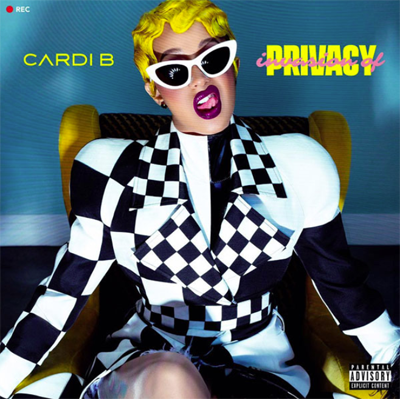
18. Cardi B - Invasion of Privacy
A strong sense of personality can salvage a bad song, and a strong sense of personality can elevate a good song into excellence. Cardi B writes and chooses good songs, and then she applies her force-of-nature persona right on top of them, as if throwing baking soda into a middle school volcano. The songs are unapologetic, the raps confrontationally confidence, the hooks bountiful, and Cardi is the molten center around which they orbit. Punchlines like “pussy so good I say my own name during sex” and “I’m about my coins like Mario” flick out of the verses, lodging themselves firmly in the brain. Cardi surrounds herself with guest spots, but aside from Bad Bunny, they all seem like followers to her leadership. With Invasion of Privacy, Cardi declares herself the top pop rapper on the scene - and then she proves it.
Download: “I Do (feat. SZA)”, “Get Up 10”, “I Like It (feat. Bad Bunny & J Galvin)”

17. cupcaKke - Ephorize
No one's having as much fun as cupcaKke. Gleefully smashing through decorum and good taste, cupcaKke runs on the dual fuel of manic fun and undeniable chops. Her rhymes are bursting with color, and she moves through them fluidly. Not only is every lyric a punchline, but most of are pretty good punchlines*, and the ones that aren't are at least creative. "Coochie guaranteed to put you to sleep so damn soon, I'm riding on that dick reading Goodnight Moon," she brags on "Duck Duck Goose"; "drop a body in two seconds like I'm a baptist," on salsa-inflected goofball stunt "Fullest". cupcaKke zips between oddball analogies, working the radio-ready beats behind her like a jungle gym.
cupcaKke doesn't pigeonhole herself into raunchy comedy rap, however. While that's a place she excels, she's can also challenge a surprising amount of pathos into her more serious material. "Total" is full of actual longing, and tracks like "2 Minutes" and "Self Interview" evidence that there's a human being instead of a cartoon character, a young woman navigating dark places and emerging with her humor and joie de vivre intact. The inclusion of the less comedic songs is a good choice; cupcaKke becomes multidimensional, and her music all the more compelling for that.
*But probably the funniest moment on the record is when cupcaKke shouts, with gusto, "I was hungry as hell writing this shit" before launching into a chorus comparing herself to breakfast cereal.
Download: "Fullest", "Duck Duck Goose", "Self Interview"

16. Snail Mail - Lush
There are some albums that resonate with a season, and no album so perfectly captured a long hot summer so much as Snail Mail’s Lush. 18 year-old Lindsey Jordan hit the scene this June armed with sharp, confident indie rock songs that capture the sparkle of a teen crush and the vitality of self-assurance. With complete abandon, she threw herself headlong into her explosive choruses and swooping verses, carving out a space for herself in the current generation of songwriters.
Jordan’s lyrics and crystalline vocals convey a variety of emotions - longing, passion, thrill, wistfulness, sorrow, sarcasm - and yet the album is elevated by her arrangements, which, while squarely within the drums-bass-guitar school of rock, lend every song a sense of propulsive optimism. The guitars are buoyant and clear; the drums clip quick little paces to the uptempo tracks or add gracious, elegant texture to the slower songs. Jordan occasionally adds flickers of other instruments - the French horn in “Deep Ocean”, which recall Neutral Milk Hotel, are a particularly inspired touch - but at her core she is synthesizing the tradition of guitar-based singer-songwriters into an energy purely her own. She knows how to make sunlight out of power chords, a trick she deftly uses to amplify the vibrancy of her honeyed vocals.
Jordan commits to every word on Lush, underscoring plaintive resignation and anthemic declarations of love with painful sincerity. When she sings “I’ll never love anyone else” on “Pristine”, or that she’s in “full control” on the track of the same name, it’s multi-layered; her youth makes this seem like an unlikely prospect, and yet you don’t doubt for a second that she truly believes it. There’s no irony on the album, no self-aware deprecation, no mocking herself for being a young queer girl in love or falling out of it. Instead, it’s a pure shot of passion, a snapshot of humid, sun-drenched months full of hungry touches and aching hearts.
Download: “Full Control”, “Pristine”, “Stick”
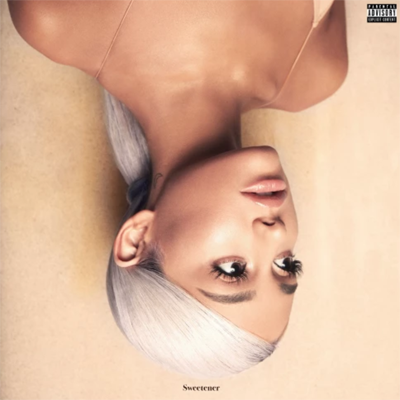
15. Ariana Grande - Sweetener
In May 2017, Ariana Grande’s concert in Manchester was struck by a bomber, and twenty-three fans were killed as they left the show. The horrific event is an inevitable part of Ariana Grande’s celebrity, ushering her into a class of pop stars who have suffered immense public trauma and are asked to process it as part of their art and brand. Rihanna was beaten by Chris Brown; Britney suffered a nervous breakdown and was declared incompetent to handle her own affairs; Kesha revealed a gruesome litany of terrorization by her producer. In this case, as with the other women, Ariana’s next album was expected to be a statement on the event, and the audience waited with bated breath to see if Ariana would return to making escapist pop or would directly address the elephant in the room.
Ariana did the latter, making an album explicitly about resilience, self-care and optimism in the face of grief. Grief and trauma make up the beating heart of Sweetener, simmering beneath even the fluffiest or sultriest tracks. These songs are mantras, active efforts to reclaim a life that has been derailed. Grande clarifies her public persona here, but rather than reinventing herself with Rihanna’s steely-eyed dangerousness or Britney’s icy inhumanity, Grande takes a page out of Kesha’s playbook. To be a survivor in Grande’s definition isn’t necessarily to become untouchable and never be hurt again; it’s to process that pain can and will happen again, and that victory is to find happiness in spite of that.
Grande’s interests on the record are quotidian and intimate, and the music reflects that. The polished, airy R&B isn’t music for the club so much as music to soundtrack waking up next to a sleeping lover. Which is not to say that the escapism of her pop music is gone: “breathin” and “no tears to cry” are as muscular and transportive as any other track in Grande’s discography, despite their subject matter explicitly addressing recovery from trauma. Elsewhere, the album trades propulsion for affection. Grande’s layered vocals are close and, in spite of incredible attention to detail, have a loose, dreamy quality, as if she was just daydreaming her way into what happened to be perfect pop music. Small production flairs - the precision strikes of “ba ba bum bum” in “R.E.M”, the fingersnaps in “get well soon” - inject a playfulness into the softer ballads, while Pharrell’s fidgety samples and unorthodox betaking add zest to the left-of-center uptempo tracks.
Tasked with the unfair prospect of processing a terrifying tragedy through the lens of pop stardom, Grande put out the best artistic work of her career so far and one of the most thoughtful, honest and hopeful albums of the year. She didn’t reinvent herself; she refined her artistry to reflect herself more closely and openly than ever.
Download: - “breathin”, “no tears left to cry”, “goodnight n go”

Amanda Shires - To the Sunset
There’s something about Amanda Shires’ album To the Sunset that feels like a travelogue. Each song is pinned together by a keen sense of restlessness and curiosity. Shires is a strong artistic voice, and she adapts to different territory fluidly. In terms of sound, she alternates between country, southern rock and folk with aptitude, and moves just as smoothly between intensely personal and observational narrative songwriting.
Shires is a capital-S Songwriter first and foremost, and the lyrics are like glittering flecks of gold in the quick river of these economical, unostentatious songs. She pulls at little details as if they were threads to untangle a tapestry. Whole secrets unspool before her as she picks at small turns of phrase or observations. She tells stories or she exhumes emotions. Her voice tends towards mousiness, giving the lyrics more space to breathe, uncomplicated: “the way you walked into the room, if I was a flower I would have opened up and bloomed,” she patters on one track, capturing love; elsewhere, there’s a neck-turning opening line of “I know I said everything’s going to be alright, what I meant to say was that you’ll make it through”.
Just because the lyrics are the highlight doesn’t mean that the rest of the music doesn’t meet the challenge it poses. Shires has the sorts of melodies that catch on the brain and add musical dimension to the subjects of the songs; “Mirror, Mirror” has a hypnotic, solipsistic melody, while “Parking Lot Pirouette” sonically illustrates a changed mind with a sharp break from the laid-back vocal into a shout. The arrangements to the music likewise make small stories feel lush and expansive. The guitar notes on “Swimmer” sound like shooting stars in the background, and the fervor of “Eve’s Daughter” is a surprising and delightful surge of energy.
At just thirty-two minutes, To the Sunset is compact and brief, but its economy and the depth of Shires’ songwriting makes it a weightier package than most records lasting an hour.
Download: “Parking Lot Pirouette”, “Swimmer”, “Charms”
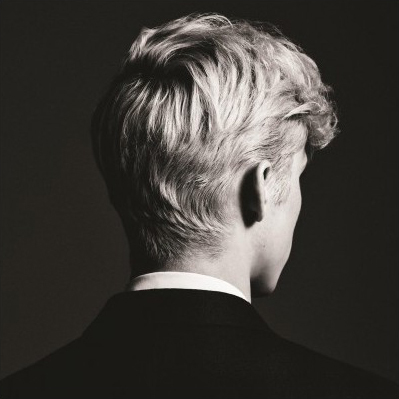
13. Troye Sivan - Bloom
Humility is a rare thing to find in pop music, a genre notorious for braggadocio and excess. Troye Sivan’s music has its feet planted in contemporary pop, aqueous, smooth and flecked with 80’s synth pop, but its attitude is revolutionary. The undercurrent of Sivan’s album is, of all things, gratitude; Sivan looks at the subjects of his songs like their presence in his life is a gift. To be loved, to be taught, to be forgiven, to be left behind - Sivan understands that all these experiences have molded him into the man he is today. His confidence and self-love allow him to reflect that light onto the people who brought him to this point.
Bloom is an album that feels cleansed of any toxicity but not of complexity; the relationships here are wholesome, but they’re also multifaceted. “Seventeen”, a somewhat controversial opener, finds Sivan relating a positive sexual experience with an older man as a teenager, a story that’s more common to young queer people than straight audiences might understand. “The Good Side”, a sparkling ballad, finds Sivan apologizing to someone for having taken more than he gave, but the self-indictment isn’t angsty or self-pitying; it’s simply open-hearted admiration for the grace that the subject of the song took it with. “Plum” is a breakup song, but one with sugar instead of acid; “Bloom” is a song about sex, but it’s also about the sort of trust it takes to embark on something daunting and new. Throughout the tracks, Sivan remains unwilling to demonize others or aggrandize himself, focusing on his growth, their kindnesses, and the absolute blessing that is human connection.
Like many pop albums, Bloom is about sex, love and regret. But it’s also about something fairly unique among its peers: this album is about grace.
Download: “Bloom”, “The Good Side”, “My, My, My!”

12. Black Panther Soundtrack
When I saw Black Panther at the historic Grand Lake Theater in Oakland, the cheer at Killmonger’s first scene was so loud the audience missed most of the dialogue. The movie struck a chord as a celebration of diasporic American black culture and African culture, one that the soundtrack emulates with the way it spotlights fantastic domestic talent in playful harmony with African influences and musicians (in this case, South African, with showstopping appearances by Yungen Blakrok, Sjava, Saudi and Babes Wodumo). Kendrick Lamar’s curated collection, through which he makes frequent cameos and takes a few starring roles, is a conversational back and forth between different voices for struggling in the world and rejoicing in victories. The superhero element is downplayed in favor of political racial commentary, which works in favor of the collection; the uniting feature isn’t an external story but a topic which each guest can provide singular commentary on. As a collection, Black Panther is a showcase for some of rap’s most promising talent and an glimpse at the conversations that come from navigating dual identities.
Download: “Opps (feat. Vince Staples & Yugen Blakrok)”, “Redemption (feat. Zacari & Babes Wodumo)”, “King’s Dead (feat. Jay Rock, Future, Kendrick Lamar & James Blake)”
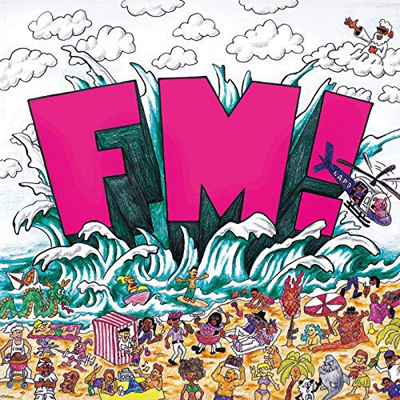
11. Vince Staples - FM!
Few rappers make music as straight-up bleak as Vince Staples does. Like many, Staples amplifies the feeling of nihilism with evidence of happiness; in “Party People” on 2017’s Big Fish Theory, Staples rapped “how I’m supposed too have a good time when death and destruction are all I see?” between singing about dancing and sex. On FM!, Staples expands the source of supposed happiness: he draws on an entire season, the kind of experience that provides a universal thread in a community. Tribes may be divided, violence may be high, homes may be loveless, but the summer sun is something for everyone. It’s that commonality that makes the grimness of Staples’ poverty-focused subject matter all the more potent; by highlighting common happiness, he all the more cuttingly highlights common misery.
Throughout the album, Staples’ signature rapping (at times halfway to a yelp in the back of his mouth, at times an even and precise skip, always dexterous and crisp) juxtaposes the things that shout unite people against the consequences of strife. “My black is beautiful but I’ll still shoot at you,” he says, as if he’s resigned himself to it long ago; the violence and policing has enlisted everyone in its self-perpetuation. White fans, too, are taken to task for their complicity, their commercialization of black pain. Staples has a global view of what troubles him and the nuance makes his art brutal and singular. The production of the record, a windy, region-specific collection of West Coast beats, lends the music a sense of location and community. Staples has created a document to the stresses that affect the people he loves and grew up with, to the way that even the most simple pleasures can have the light drained out of them by the institutions of exploitation and classism in our country.
Download: “Run the Bands”, “Don’t Get Chipped”, “Feels Like Summer”
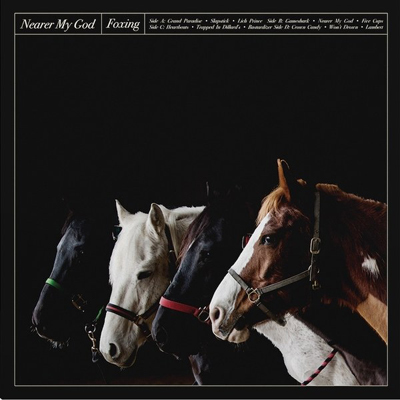
10. Foxing - Nearer My God
Despite being categorized as an emo band, Foxing devours and synthesizes other sounds with insatiable appetite. The sounds on Nearer My God skitter from funk to classical, arena rock to shoegaze, drawing influences from everything from Coldplay to The Jesus & Mary Chain to Vivaldi. All of them have an underlying sense of anxiety and feverishness, as if the band members aren’t comfortable settling into any one groove for too long. Songs take unexpected turns, exploding into cathartic wails, sloping synth sections or jagged guitar solos. Vocalist Conor Murphy alternates between a falsetto cool and a rock and roll yowl. Lyrics dart into shadows and uncomfortably intimate confessions, then back out into universal sentiments. The album is nearly an hour, and yet it never drags or repeats itself.
“Nearer My God” and the denouement “Five Cups” are the twin centerpieces of the album: one a nine minute rumination, heady and dark and even passive, like sinking into dark water; the other a running leap of faith, a momentous wail that takes flight, a wide-eyed celebration of feeling anything at all, even when that feeling is crushing uncertainty. Foxing has a skill for punctuating their more esoteric lyrics with the occasional emphasized phrase that’s biting in its simplicity. “Does anybody want me at all?” Murphy howls on the title track, surrounded by a hurricane of little details about pool boys and cork board. The tensions on the album - between genres breaking loose from each other, between ephemera and solidity, between minutiae and grandiose abstractions - are the point of it all. Many albums talk about breaking free; few actually sound like it.
Download: “Nearer My God”, “Slapstick”, “Lich Prince”
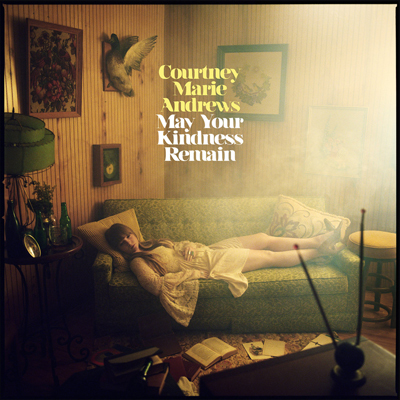
9. Courtney Marie Andrews - May Your Kindness Remain
There may be no album this year warmer than Courtney Marie Andrews’ May Your Kindness Remain, a stately but unpretentious Americana record radiating wisdom and the titular kindness. The connective tissue of the record is deeply-felt openhearted and generosity, all conveyed with pure vocals, classicist country music figures and the spaciousness of a church. In encouraging us to be kind and good to each other, in highlighting humanity’s potential, she doesn’t patronize or downplay the work we need to put into it, nor does she cover it with frills. It’s a deeply-held conviction, the kind one finds in themselves after the artifice has been rubbed away.
The songs on this record seem quietly dedicated to people; though stand-ins for greater symbols, you can’t also help but feel the love and attention Andrews has given each. Occasional details pop, like the image of making love on a pile of dirty laundry or of waiting outside a hardware store for work. Andrews is barely 28, and yet she seems to carry enough experience to live in each of the stories she’s telling.
Musically, Andrews rushes nothing, tending to each song with care, as if it were a garden she’s giving time to flourish. Her guitar solos feel like watching a ship come into harbor, slow, titanic and majestic, with steady drumbeats like breaking waves. Her twangy voice has a sweet purity to it, shorn of grit, and conveys her lyrics without obfuscation. Andrews has stated about the record that it’s about “coming to terms with depression and the reality of the world we’re living in”, and yet the album doesn’t feel dour or pessimistic. We hurt because we love and hope and sometimes have those loves and hopes disappointed. Compassion is all we can do for each other, but it’s still there when all our other options are taken away.
She reserves wry humor for herself, such as on change-of-paces “I’ve Hurt Worse” and “Kindness of Strangers”; to friends, lovers both current and former, strangers, immigrants and transients, she offers nothing but empathy, making the album a feel-good record with heft and depth.
Download: “May Your Kindness Remain”, “Border”, “Took You Up”

8. Neko Case - Hell-On
Neko Case has always been a force of nature. Her voice, clarion and inherently metallic, could turn any sentiment into a declaration, and as one of our generation’s craftiest songwriters, she lends her gift to worthy material. On Hell-On, Case threads hefty lyrics about nature and female dignity into her typical alt-country, delivering some of the most complex and multi-layered songs yet in her long career. Case elucidates the commonalities between valuing the Earth’s right to exist and valuing a woman’s, drawing clear parallels between the extinction of species and the eradication of female privacy.
Case has always explored these topics, but rarely has she made such an explicit comparison as in “Halls of Sarah”, a song that could as easily apply to a publicly-shamed woman as to an ocean bay, or on “Hell-On”, which toys with the language of consent to indict government exploitation. Throughout the album, nature and femininity are inexorably woven together, one bleeding into the next. Case winds together grand concerns like climate change with intimate insecurities, feelings of failing in her performance of womanhood or in her ability nurture. She lays out a claim for these woes all stemming from the same source: entitlement to the fruits of others.
This headier material does not, however, neutralize Case’s emotive power, which is as compelling as ever. The anxiety in “Oracle of the Maritimes” is palpable. Her duet cover of “Sleep All Summer”, with original artist Eric Bachmann, is perhaps the most effective and swooning eulogy for a relationship all year; by contrast, singalong handclap jam “Bad Luck” captures the absolute fatigue of a breakup without ever feeling lethargic. “Curse of the I-5 Corridor” is a manifesto on restlessness, a magic carpet ride epic at the center of the record. The album seamlessly blends inner environments and outer concerns, creating a cohesive core and persuasive, heartfelt argument for reforming the entire way we see each other and the planet.
Download: “Oracle of the Maritimes”, “Bad Luck”, “Sleep All Summer”

7. Mitski - Be the Cowboy
The theme underlying Mitski’s new album is one of reclaiming a classic American archetype. In media, cowboys have been used as icons of wanderlust and honor; in contrast to the inverted image of the outlaw, the cowboy is elevated by his commitment to his values, but free to roam the land. We associate them with freedom, escape, big skies, solitude, self-sufficiency. Total self-determination.
Be the Cowboy isn’t a rallying cry of victory, but an examination of the struggle towards that independence. The songs grapple with the commands we receive from our hearts, from our bodies, from our expectations. There are factors beyond our control that get in our way, mess with our brains, drag us back home. You can’t escape everything. The modern image of a cowboy is just that: an image. It isn’t a reality.
Mitski compellingly details all those things that erect a wall between us and total blissful solitude, those things that draw us back from a life of hermitude and oblivion. Humans crave intimacy. They crave validation. They lust for artistic fulfillment. They fear dying alone, or dying at all. These are songs about old, frayed relationships, about giving up stability for creativity, about needing to be noticed, about unquenched lust, about how accepting mortality is easier when you have others to do it with.
Mitski has a distinct musical signature, a way of using her chord progressions and straightforward vocals to drive melodies away from where you’d expect them to go. The songs range in emotion and tone, from the lullaby-ish closing ballad “Two Slow Dancers” to the euphoric high-fantasy eruption of “Geyser”, the wistful country jangle of “Lonesome Love”, the compounding neurotic disco of “Nobody”. The music elicits passion and attachment, but is highly detail-oriented; Mitski is as fussy as she is forceful. The tracks are brief, all inefficiency pared away. Building tension in songs is effective precisely because it’s so refined; in communicating her vision, Mitski doesn’t let impulsivity or sloppiness interfere with the end result.
In spite of the fervent anxiety of the album, there’s something joyous about it. This album isn’t a condemnation of all the foibles that keep us from total self-determination; it’s a celebration of them. Mitski cracks open these little moments and pulls beauty out of them, and they shimmer enough to make escape a little less tempting.
Download: “Geyser”, “Lonesome Love”, “Two Slow Dancers”
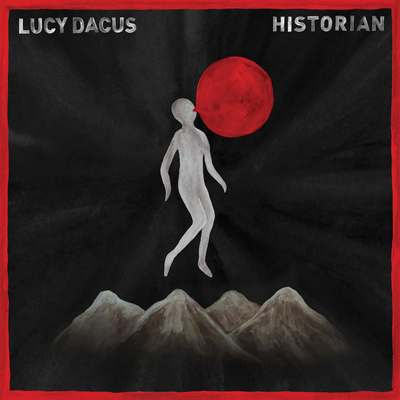
6. Lucy Dacus - Historian
Historian begins with a breakup song and ends with a meditation on love, but Dacus isn’t content to narrow her focus. Her muses are people, people whose interactions with her and each other are loaded with history, mistakes, betrayals, confidences, passions. Dacus’ songs are about family, friendships, acquaintances and herself. There is no person she can’t be fascinated by. She has a keen sense of what internal stories others are telling themselves, and the result is that her songs seem less like depictions of other people than of collections of how people who describe themselves in absolute private.
Dacus’ music is generally unadorned, straightforward indie guitars-rock-bass music, with only occasional punctuations of keyboard, strings or horns. Dacus doesn’t need any more than that to make her works sound like some sort of evolution of a symphony; her songs build and erupt, volcanic and lush, into passionate commands. Dacus’ leverages her crescendos well, knowing how to pull back so as to not diminish the returns and knowing which parts to commit to for maximum emotional payload. The chant of “everybody else looks like they’ve figured it out” at the end of “Nonbeliever” is wrenching, as if Dacus has peeled back the flesh on her subject and revealed the insecurities written on their heart; “Body to Flame” is even more so, a despairing appeal to a sister figure who cannot center herself without external approval. “I see you there with your arms outstretched / waiting for someone to come / rip open your chest,” Dacus cries, her voice building up stream throughout the lyric until the last word is a funereal wail.
Even in the quieter moments, Lucy Dacus’ songs are stentorian. There is something commanding about them, a sort of internal gravity that pulls the listener into her warm, solid voice.
The two tentpoles of the album are the opening and penultimate tracks, “Night Shift” and “Pillar of Truth”, both around seven minutes long. The former is a song that will likely be Dacus’ calling card throughout her career, an unspooling of an ended relationship that culminates in the certainty that time will heal her wounds; the latter is a cross-generational accounting of Dacus’ great-grandmother’s death, switching viewpoints to create a sense of continuity and building to an appeal to God and a swell of horns like waves crashing on the shore. Those songs in particular exemplify the drama and storytelling muscle that Dacus has to flex, but the collection as a whole utilizes those incredible skills towards a deeply empathetic and powerful sophomore album.
Download: “Night Shift”, “Pillar of Truth”, “Body to Flame”

Soccer Mommy - Clean
Soccer Mommy has taken a lot of heat for her stage name, with critics from various corners accusing it of being so uncool as to disqualify her as an artist to be taken seriously. But the name is actually perfect; both overly mature and infantilized, the name reflects the hazy in-between of being on the cusp of young adulthood, simultaneously old enough to feel restless and certain of your own wisdom but still hopelessly, desperately caught up in the newness of your experiences. It’s a difficult feeling to replicate on tape, and yet Sophie Allison manages to not only pin it down but to flesh out the details and contours of the phase.
Allison’s lyrics are filled with emotions she knows are disproportionate to their triggers. She walks away from relationships feeling wounded, knowing it will pass but trapped in the whirlwind of the present. She is keenly aware that her heartache reacts independently of her knowledge that disappointing boys would never be anything but unsatisfactory. She daydreams of other girls, blurring the lines between wanting them and wanting to be them. She traps her big feelings in subdued arrangements, allowing light to poke out of the cracks only occasionally, which lends the entire record a feeling of pent-up energy, building over nearly thirty minutes a rising action that crests in the excellent “Scorpio Rising”. “And I’m just a victim of changing planets,” she admits, defeated, at the end, the music going off like a sky of firecrackers behind her, “my Scorpio rising and my parents”. The outro is like a long exhale, leading to a quiet peace for the final two songs on the record, an interlude and a gentle curling back up in “Wildflowers”.
Though drawing from the profane, youthful jadedness of early Hole and the dreamy simplicity of Lisa Germano, Allison establishes her own voice, fixing a certain restlessness into her music that distinguishes her from other young songwriters. There’s a lurking sense of brutality in her work, of the punishing weight of trying to navigate the dense jungle of adulthood with nothing but a butterknife. In spite of this peripheral darkness, there’s a certain gameness that Allison brings to the fore: the knowledge that maturity, and thus a way to understand everything around her, is just around the corner. She just has to make it through.
Download: "Cool", "Scorpio Rising", "Flaw"

4. Jimmy Urine - EURINGER
Your enjoyment of EURINGER, or of Mindless Self Indulgence generally, is entirely dependent on how entertaining you find smart people doing stupid things. If you, like me, think that these antics are the apex of comedy, EURINGER is another solid entry in the Mindless Self Indulgence frontman’s delightfully idiotic catalogue. If you have a sense of taste or decorum, you’re likely to just find this record grating and moronic.
It is moronic. This is a deeply stupid record, full of the musical equivalent of telling someone to stop hitting themselves. This record is resplendent with your-mom jokes. This record opens with a trigger warning that includes synthesizers. This record interpolates Marilyn Manson’s “The Beautiful People” into a gender-wonky tirade about…something or other. This record has possibly the most obnoxious cover of “Wuthering Heights” ever recorded, a shrill combination of Urine’s processed falsetto and a maddening bap-bap-bap-bap of chunky electronics. This record has Grimes, who got her boyfriend in trouble with the SEC when he tried to impress her with a marijuana joke, to do an anti-drug PSA track, that then dovetails into a happy-hardcore rendition of a Doobie Brothers’ song. This record has Gerard Way and Urine jockeying to see who can come up with the whiniest singing voice. This record has features from Urine’s mother and his father, who are surely just humoring their weirdo son at this point.
It’s all coated in layers of irony, of course. When a fully-formed Jimmy Urine hit the scene with Mindless Self Indulgence in 1999, he’d already developed a persona in triplicate: the aggressive, cocaine-fueled rockstar frontman; the meta critic exposing said frontman for his affects and posturing and for the fickle soullessness of the music business; and the musician behind it all, keenly aware that to create the first two personas was a giant and fantastically dumb waste of time. For as inane as the album is, Urine is entirely self-aware, and his cleverness and musical chops keep the entire thing from imploding.
Mindless Self Indulgence spent the 2000’s amassing a cult following of misfits who found themselves reflected in the indiscriminate chaos of the band’s humor. Mindless Self Indulgence jokes are like grenades with the pins pulled: they hit everyone in the area, including the originator. The fuck-you, fuck-me, fuck-them, fuck-us carnage serves as a bonding activity, making an in-crowd of the out-crowd in our profound uncoolness. Mindless Self Indulgence’s particular brand of self-deprecation created a safe environment for freaks of all sorts, particularly their LGBT fans. “Everything’s stupid bullshit and that’s hilarious” is a wonderful umbrella to shelter under when you feel that you, personally, are stupid bullshit.
There’s a depressive streak to MSI’s humor; there’s also salvation in the way amplifying everything to the point of ridiculousness makes the world seem less like an oppressive smog than like a kaleidoscope of silliness. Self-loathing cozies up to self-aggrandizement, misanthropy to creative hunger. Anger gets weaponized and then neutered with goofiness. Fans came to concerts as much to cry as to laugh.
Jimmy Urine doesn’t prove that this kind of comic rampage works in 2018. In fact, it doesn’t really work at all. This isn’t an album with wide appeal; it’s unlikely a single person who isn’t already a fan will find anything to take away from this album. But for those fans who are still out there, it’s a gift, a reminder of that brief period of alchemy where turning hurt into stupidity was enough to take the pain away.
“Don’t forget: you’re bizarre,” Urine shouts on one of the tracks. It sounds like a diss on the outside, but to the fans who pulled through rough teenage years just to get to the next concert, the next single drop, the next album release, it’s being called back home.
Download: “The Medicine Does Not Control Me (feat. Grimes)”, “Detroit and Only Halfway Thru the Tour”, “That’s How Jimmy Gets Down”

3. Ruston Kelly - Dying Star
Country music, more than most genres, is tied to a sense of location and locomotion. Classics talk about hometowns and trains, missing home or escaping the law or simply stagnation. Basslines chug along like the wheels of a vehicle; steel guitars give the illusion of wide open skies brushed by smears of cloud. There’s some fantastic country music that sounds like mud on the tires and wind through the car window, like a journey unfolding on an open road.
The journey in Dying Star is both musical and spiritual. Written after an overdose sent Kelly to the hospital, the topic explicitly knitting all the tracks together is addiction and sobriety. Kelly is as comfortable writing in abstract poetry as he is in grim and sometimes perfectly off-putting detail; the experiences of the songs, bleak as they are, feel lived. Songs like “Faceplant”, “Mercury” and “Blackout” are almost cringe-inducing in their honest debasement, in the ugliness of their realities; they’re not costumes but confessions. The promise that this album ends in recovery is sometimes the only way to get through the record without feeling filled with blackness, and thankfully, it’s realized. The slow dig from rock bottom up to hope is meticulously journaled and passionately accomplished.
Musically, the album captures that sense of movement and wanderlust that typifies great country music. It leans into rather than away from country tropes, with crisp, soaring melodies replicated on the harmonica nearly as often as they’re sung. When Kelly adds something new to the country palette, it’s still centered around the sounds of the genre; the vocal processing in “Son a Highway Daughter” and delicate keyboard dollops in “Anchors” are, conspicuous as they are, incorporated into the sound to drive the songs further, rather than pull away.
The construction operates as a well-oiled machine, with choruses that slide in smooth and moving; arrangements lush with guitars and steel guitar wrap around Kelly’s voice, which is a dry, woozy drawl that occasionally bursts into wild, dirt-spattered wailing. Ultimately, this amount of diaristic lyrical honesty would crumple without muscular, propulsive, sing-along music to carry it, and Kelly delivers in spades. The choruses to “Mockingbird” and “Blackout” are some of the most memorable and catchy hooks out of the genre this year. The switch between jaunty ditty and hapless plea in “Faceplant” is a clever way to break up the aching ballads with relieving liveliness.
The subject matter makes this album a harrowing ride; the strength of the delivery gives it endless replay value and cements it as a modern classic. There’s escape and release wound into the guitar strings of the record; there’s an open road the album summons, and it’s to somewhere better than the worst we are.
Download: “Blackout”, “Anchors”, “Son of a Highway Daughter”

2. serpentwithfeet - soil
No one is making music like serpentwithfeet. Josiah Wise has created a genre unto himself, a sort of gothic, monstrous R&B that’s equal parts Tom Waits and Björk, fervently erotic and sonically distorted. These apocalyptic dirges drag R&B kicking and screaming away from pop musing, twisting and amplifying the sensuality of the genre into something horrifying and moving.
Listening to soil requires dedicated attention, as aside from the closing embrace of “bless ur heart”, the tracks are intentionally abrasive and unsettling. Woodwinds, church organs, male choirs and stings of violin lick up the sides of the arrangements; snarls and pants punctuate the dark. Wise’s powerful, dexterous voice alternately caresses individual notes and then skitters over melodies like an insect. He is the center around which the album orbits. His voice is the flashlight we carry through the haunted house of love and lust. It flickers with the potential to betray us and plunge us into dark.
Queerness is a vital element. The idea that forbidden love is all the more powerful for its danger pervades the album. Most of the tracks are outright sinister, with devotion sounding more like a threat. Love is so precious in a time of homophobia and anti-black racism that it must be treasured to the point of obsession. “I get to devote my life to him,” a chorus of Wises sing in “cherubim”, like a gospel choir turned upside down, the anthem of the album. “I’ll comfort all of you.” “I’ve been sitting alone for hours waiting for you to bring your ugliest parts to me.” “Your scent will be the centerpiece of my home.”
Throughout the album, Wise commits to the idea of being “extra”, a term often used pejoratively by straight audiences coopting it from queer communities. No one will be more “extra” than Wise. “I want to make a pageant of my grief,” he sings before detailing a fantasy of carrying around his lover’s half of the bed down the street. He sings of tracking down his lover’s exes to try to get one more sniff of his lover’s cologne. He sings of setting his father’s home ablaze. The music reflects this desire for drama, for some kind of lancing of emotion; the songs are richly-produced, anchored by powerful writing and a plethora of evocative sounds. It’s a reclamation of the concept; this passion is not melodrama but reality simmering beneath the surface.
How does one reconcile their darkest urges with their capacity for love? This is the question Wise navigates through the record. All the horror of the record is only a cancerous outgrowth of true connection; once excised, kindness remains. That Wise ends the record on “bless ur heart”, a hushed ballad stripped of any semblance of dread or threat, is a redemption. It’s pure love. After the ugliest thoughts are laid on the table, there can be healing, there can be honesty, and the passion can be cleansed.
Download: “cherubim”, “bless ur heart”, “mourning song”

1. Grouper - Grid of Points
Some music seems to happen rather than be performed. Grouper is one of those rare artists who, through their own craft and talent, gives music the air of the divine, as if songs were passing spirits in the ether and the artist were just a vessel to convey them. A Grouper song sounds like a visitation from something just parallel to our reality, an echo from past the veil.
No one sounds like Grouper. Some musicians intersect with her ambient dream-pop genre - Cat Power, Midwife, My Bloody Valentine - but none capture the particular sound Liz Harris manages. She has an unparalleled ability to create spaces and a fearlessness in using gaps and pauses as instruments in their own right. On Grid of Points, as in her more recent works Ruins and Dragging a Dead Deer Up a Hill, Harris experiments with more structured songs, but grounding her work in gentle chords and harmonies doesn’t diminish her ethereal qualities at all.
Harris still doesn’t trouble herself with guiding the listener through her work; you either accept it and let it fill your empty spaces, or you grow bored with it and disengage. Her lyrics are often impenetrably obscured. Her Genius pages are often just trails of question marks. She treats words as if they’re just vehicles for sounds, as if consonants are incidental collisions between vowels or pieces of shell scattered on a vast beach. Notes bleed together with overlapped vocals or sustained piano chords, elsewhere, the bare remnants of a note will hang until it vanishes, dissipating like hot breath in the cold.
There are images that come to mind when listening to Grid of Points: cold mornings, dusty rooms, still lakes, distant rocky beaches. The music is chilly in a way that indicates calm rather than discomfort, ghostly but not haunted. Ironically, it’s a celebration of silence; the songs are so delicate and vaporous that they seem unable to exist except in total tranquility.
At just twenty minutes, Grid of Points is like a dream you wake up from too soon. The last track ends in the sound of a train passing, a rattle away from a serenity one could spend forever in.
Download: “Blouse”, “Driving”, “Breathing”
